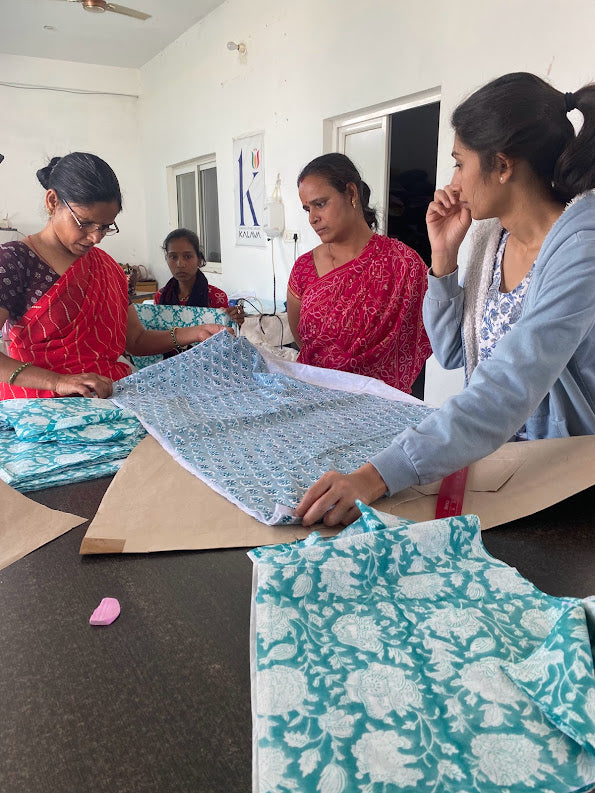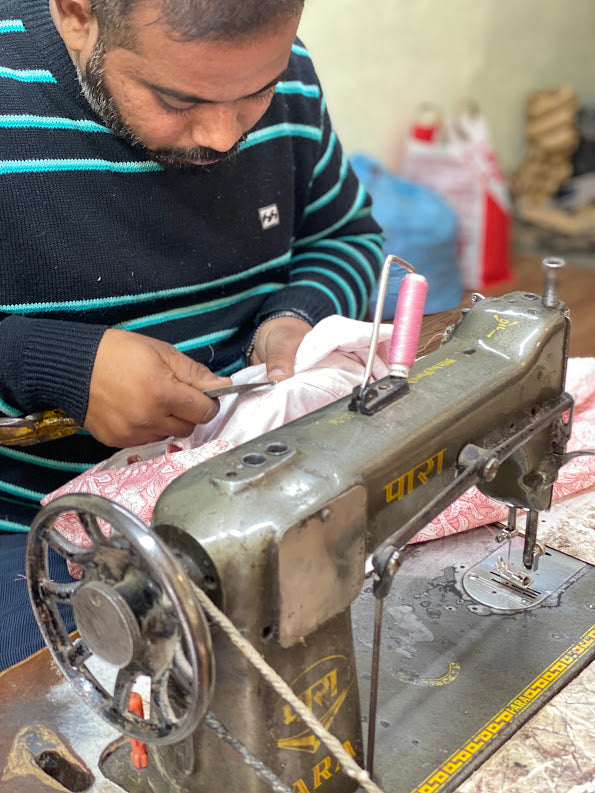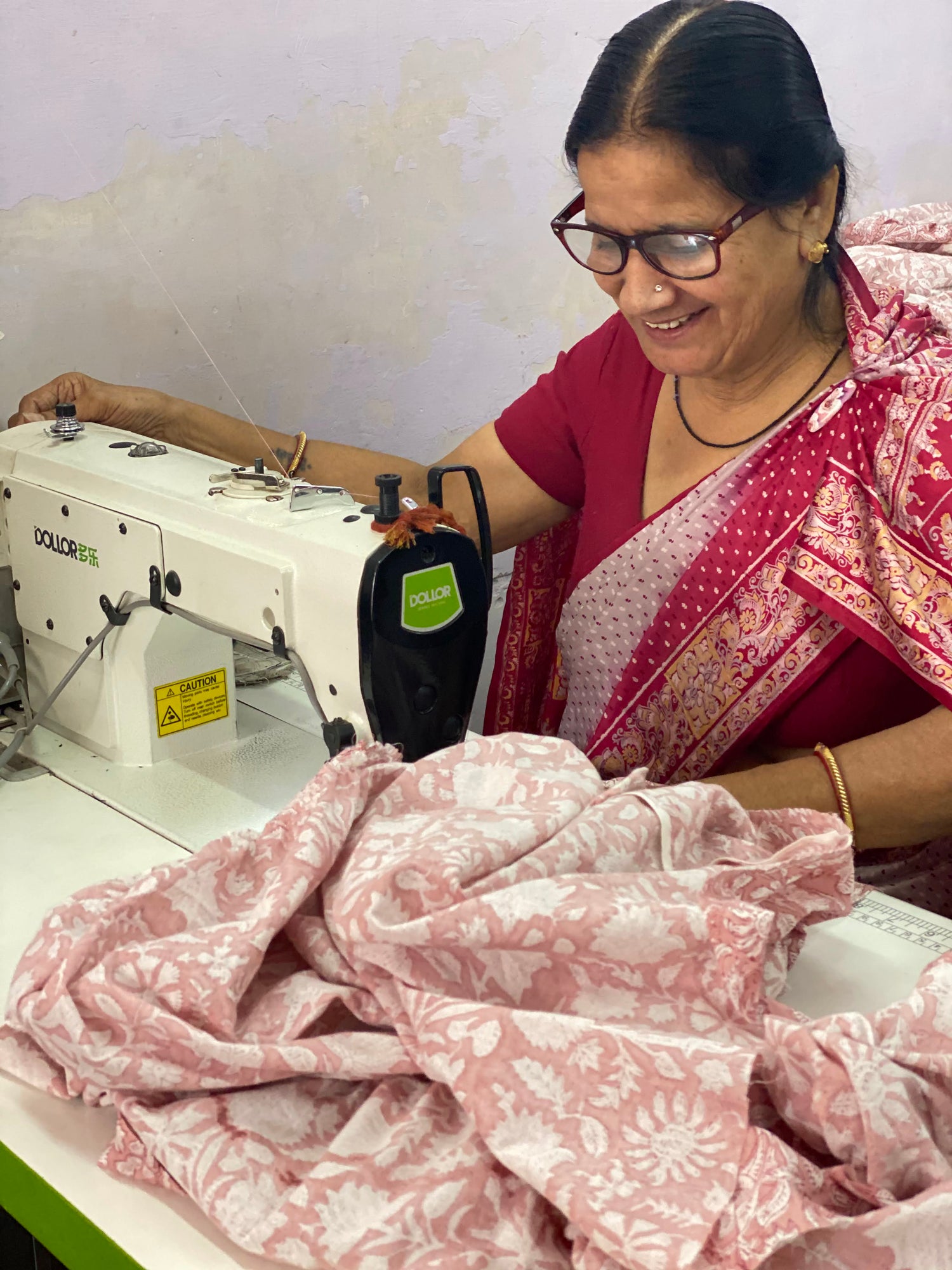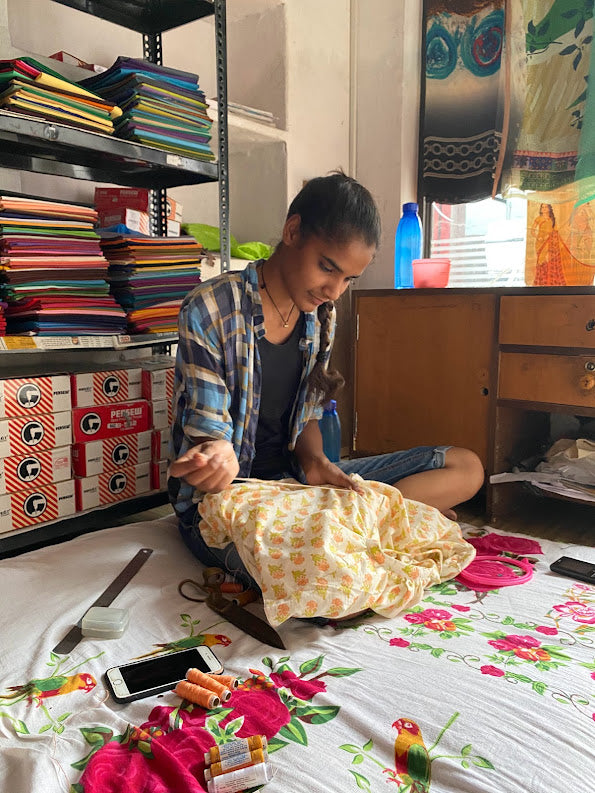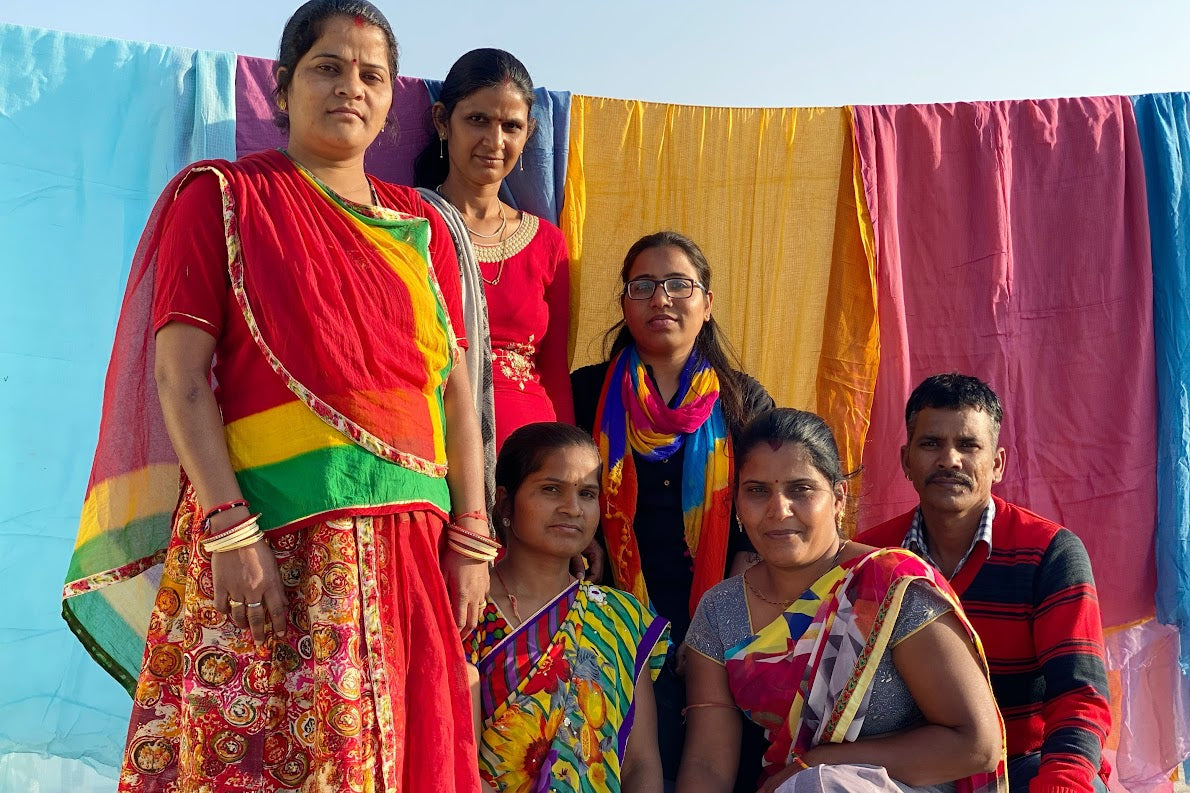Garment Care
It may seem intimidating to be referred to a page on how to take care of your new pieces. Don't worry - there's really nothing complex about it! Owing to their handmade, hand-dyed nature, our garments just need some tender loving care.
--
Only wash when needed
You don't necessarily have to wash your garments after each wear; this will prolong longevity and reduce fading (and save on water). We recommend spot cleaning and simply airing out your garment when possible
When the time does comes for you to wash your garment, please see general wash care instructions below:
Be gentle
Crafting garments with processes that are less harsh on environment means that the longevity of our pieces really benefit from gentle care.
Hand wash inside out, separately and gently in cold to room temperature water.
If you do have to machine wash your clothes, we only recommend it for pieces that are not natural and herbal dyed, and that you only do so with a top loader washing machine on its gentle/delicate setting.
Iron on low, from inside only when necessary
Especially for hand block and hand dyed fabrics, turn your garments inside out and hang/line dry in shade
Do not soak
Do not use harsh chemicals or bleach as this will affect some of the dyes, like indigo and herbal dyes (do not be alarmed if the water changes colour during your first few washes.) Make sure to squeeze out excess water before hanging up to dry.
Certain pieces need just a touch more attention, you can find their care instructions here:
Herbal Dyed pieces
As herbal dyes only use colours from fruit, bark and leaves, it is naturally a little more delicate than industrially dyed pieces. In addition to the general care instructions we've shared. Please take also note of the following when caring for your herbal dyed pieces:
- We recommend hand-washing your herbal dyed pieces
- Use mild liquid soap, natural, or non-ionic detergents when washing your pieces
- Dye may transfer during your first few wears, please wash before use to reduce this occurrence
- Herbal dyes may bleed during the first wash cycle, this is natural so don't be alarmed if the water changes color
- Please take care not to expose your pieces to citric acid as most herbal dyes are sensitive to it
- As time passes, you may notice some fading of your herbal dyed pieces, this is natural due to its low impact nature. We love the comfy, live-in quality it takes on and hopefully, you will too!
Maheshwari Silk/Cotton
While we recommend dry-cleaning, or the general instructions provided above can also be followed.
Make sure to read wash care on each individual product page, as recommendations may vary depending on fabric.
Meet some of the people who make Wray happen
Kalava Crafts
Madan ji and Sagar
Bunty
Meena
Mewar Dharohar
Our principle producer, Kalava Crafts was founded in 2014 by Madhu to help provide employment opportunities to women artisans.
Located in Udaipur, Kalava Crafts works with 125 women's artisans including tribals and marginalised & disadvantaged groups. By working closely with traditional weavers, designers and artisans, Kalava Crafts strives to place Indian craft at the forefront of the design world.
Madan-ji worked 20 years as the shop tailor for a family business until he started his own shop that he runs with his son Sagar. Over the years working together, we've seen them grow from a tiny shop in a small street in the Old City to a bigger showroom on the main road near the City Palace.
Bunty had worked as a shop tailor for a handicrafts emporium before opening his own tailoring shop just down the street from Madan ji. It's a full family affair as his wife and mother works alongside him.
Meena is a university student that worked on the hand embroidery for all our collections so far. With Covid shutdowns affecting schools and disrupting her studies, working on our pieces while she’s at home helps her contribute to supporting her family.
We worked with Mewar Dharohar to produce our first two collections. Led by Moti and his wife Manoharee, Mewar Dharohar employs women in communities within the city of Udaipur and in the villages of Thoor and Barodiya. By creating employment close to their homes, Mewar Dharohar empowers women to earn income without having to leave their families and move to large garment making cities.
